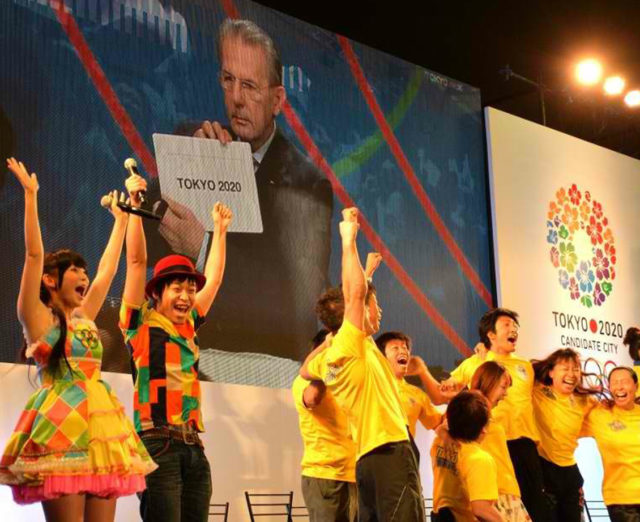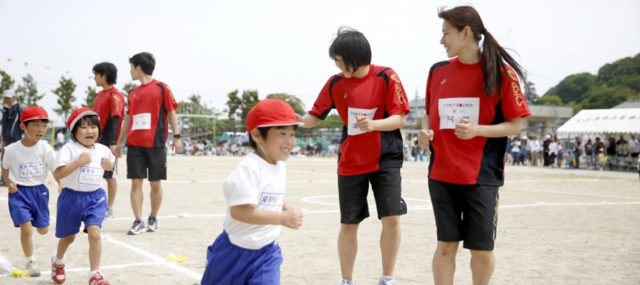Leveraging the Olympics: A Strategy for Tokyo
September 10, 2015 — Blog
Sport mega-events like the Olympics have a unique character in that they are usually administered by organizations outside of the host country. In the past, host cities have typically focused on the requirements of these external organizations and hoped that secondary benefits would filter through to the local community. However, numerous factors such as the large commitment of public funds and the recognition by the International Olympic Committee (IOC) that the Games must leave a positive legacy for the host city have produced a dramatic shift in this approach. Thus, host cities can now ask: why do we want to host the Games at all? One stock answer is in what is known as “urban entrepreneurship” or “place marketing”. Both terms emphasize using the Games to signal the significance of the host city on the global stage to the rest of the world. But there is another perhaps more important question that cities ought to ask that pertains not to the global rationale for hosting the Games but to the internal one. What difference would it make for our city to host the Games? Put another way, if we were awarded the Games, how can we use the Olympics to make our city better?

Mobilizing the City
There are two ways the host city can approach improving the city. The first relates to the actions the city takes so that hosting the Games, either directly (sport venues) or indirectly (transportation arteries), will enhance its urban fabric. The second way is about how the Olympics can serve as a catalyst to inspire the leaders and inhabitants of the host city to take new initiatives beyond the event itself. Whereas the first issue is often thought of in terms of “hard” infrastructure (the built environment), the second tends to focus on “soft” infrastructure (the social environment). In both cases, the Olympics represent a mobilizing opportunity with the ultimate goal of enhancing the lives of residents in the host city beyond the Games themselves. The Games establish a time frame, a goal-setting moment, and motivation to accomplish objectives that range from renovating existing privately-owned buildings or public buildings such as art galleries and museums, to literacy programs, or programs to encourage more active lifestyles.
It is apparent, therefore, that the order of the question:“What does the Olympics want and need?” has been reversed to “What does the city want and need and how can the Olympics help to attain those objectives?”. And somewhat surprisingly, there has been increased recognition by those in sport administration circles such as the IOC that the latter question is as important, if not more so, than the first.
The process described above is known as leveraging because it suggests that hosting the Olympics requires that local leaders and citizens take an active role rather than merely watch and react to the proposals of the Organizing Committee of the Olympic Games (OCOG). Hosting the Games does not have to just be about sport. While many find good reasons to oppose hosting the Games, once the decision has been made that the Games are indeed coming to a city, local residents must see this as a unique opportunity to consider the city’s future.
Goals for Mobilization
One of the first goals should be to monitor how plans for the Olympics will impact existing communities and to determine what can be done to amend any potentially harmful impact. A typical issue in many host cities is the displacement of people to make way for new venues, such as in London or Rio de Janeiro. The second objective is to proactively identify issues and problems in the city which need to be addressed and to determine how the energy of Olympic preparation might be harnessed to improve those situations. This can vary from issues of homelessness or the need for low cost housing (might the Olympic Village contribute to solving that issue, for example?), to skills training for marginalized people in Olympic construction or provisioning. The third objective is for community organizations to use the Olympics as a parallel opportunity to achieve their goals such as encouraging more healthy lifestyles or cross-cultural education.
While the Olympics are about high performance elite sport, it is the regeneration of disadvantaged communities that has often become the focus for many Olympic initiatives. The Cape Town 2004 Olympic bid began this trend by using the Games to address issues created by the apartheid city. Vancouver 2010 signed an Inner City Inclusivity Agreement to accomplish goals of assistance to people in the deprived area of the Downtown Eastside, and much of the momentum for London 2012 was organized around regenerating East London, an old area of post-industrial neglect with substandard housing and high levels of pollution where the Olympic Park was built. Similarly, Rio 2016 has sought to use the occasion of the Olympics to improve the lot of persons living in favelas, although only in select locations in the city.

Suggestions for Success Post-2020
When considering the key to a successful Olympic Games, there are a few points to bear in mind. First, legacy understood only in terms of physical structures ignores the importance of relationships and community as the building block of urban livability.
Second, legacy should not just be thought of in terms of the distant future or for after the Games, but in terms of what can be created as part of the preparation process before the Games begin. For example, “Legacies Now” was a highly successful idea adopted in Vancouver.
Third, the Olympics will only be a significant event for everyone in the host city when it becomes more than just a sports event, or for those interested in sport. Almost all Olympic cities have found that the huge number of volunteers needed for the Olympics provides a new avenue for citizen participation that can be a community resource after the Games are over.
Fourth, much pressure is often put on local Organizing Committees to take on or fund many of these initiatives despite their immense primary tasks. Specific organizations created to initiate and promote those goals work best.
Finally, many cities think of their history in relation to key events (e.g. wars, recessions etc.) that define who they are and what they have become. By thinking deeply and acting progressively, it is possible that the Games of the 32nd Olympiad could serve as that “dividing line” or “defining moment” in Tokyo’s history. In that sense, the Olympics will not be “something that just happened to us”, but something that “mobilized us” to make a better city!